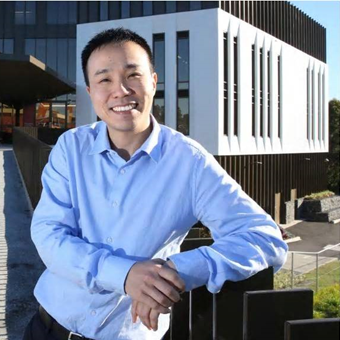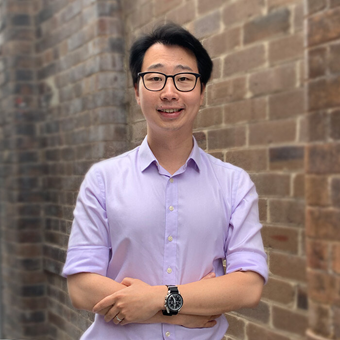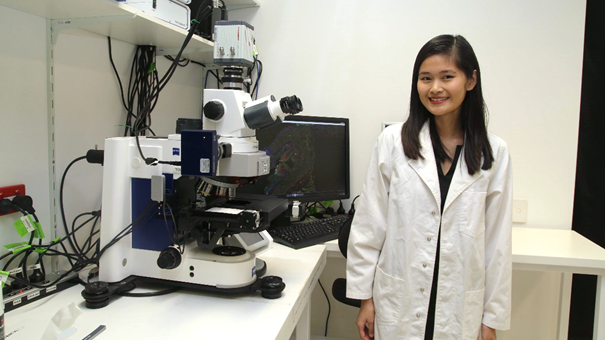Our Team

Vincent Ho MBBS Bsc(Med) MMed (Clin Epi) FRACP FACP, Clinical Project Director
Dr Vincent Ho is a clinical academic gastroenterologist to the University of Western Sydney for both Campbelltown and Blacktown Hospital campuses. He completed his degree in medicine and surgery at the University of New South Wales in 2002. His basic physician and advanced training in gastroenterology were completed in Queensland. He spent 2 years as a gastroenterology fellow in Townsville hospital gaining subspecialty experience in motility studies and became interested in anorectal manometry and biofeedback. He received further training at Northwestern Memorial Hospital in Chicago in high resolution esophageal manometry and studied high resolution anorectal manometry/biofeedback at Washington University School of Medicine, St Louis.
He is active as a full member of the American Neurogastroenterology and Motility Society (ANMS) and as a fellow of the Royal Australasian College of Physicians. Vincent is passionate about challenging taboo gut issues and creating a global hub for gut health in South West Sydney.

Jerry Zhou BSc (Hons) PhD, Lecturer
Dr Jerry Zhou completed his PhD from the University of Sydney in 2013. Jerry is an internationally recognised gut health expert. Among other things, Jerry is a lecturer at Western Sydney University and advices a number of charities in Australia, including Gastroparesis Australia and Oesophageal Cancer Awareness Group. Jerry leads the research in gut microbiome and clinical physiology. Having graduated the NSW Health MDCTP program, Jerry founded Amazing Gut in 2020, developing MedTech systems to improve gastrointestinal health.
 Doctorate of Philosophy (PhD) students
Doctorate of Philosophy (PhD) students
- Declan Power is an organic chemist, having experience in characterising compounds in Asian herbal tea and medicine. Declan uses his knowledge in compound analysis to develop a non-invasive breath test for the screening and early diagnosis of oesophageal adenocarcinoma.
- Nafiseh Mirabdolhosseini is a bioengineer specialised in the development of medical devices. Nafiseh has a passion for user-centric design and utilised her skill set to construct a portable endoscopy system for rapid oesophageal assessment. She was accepted into the MDCTP program to develop a commercial pathway for her innovation.
- Daphne Foong is interested in translational medicine and stem-cell derived gut organoids. She is co-supervised by our collaborator Dr Michael O'Connor, head of regenerative medicine. Daphne's work involves the growth of "gut organoids", cell clusters that mimic cells and function of the human gastric. She will be characterising cells from human tissue and comparing them to organoid tissue. Gut organoids have the potential to provide an unlimited source of healthy gut cells for regenerative therapy in patients with motility disorders.
- Harsha Suresh is an organic chemist whom is specialised in material structures. He has transferred his skills to determine the structural and rheological properties of low viscosity soluble fibres. Soluble fibres are an essential part of a healthy diet, their benefits include being a low glycemic index food and the ability to absorb bad cholesterol. Low viscosity fibres have the potential to improve the well-being and quality of life for gastroparesis patients as regular soluble fibres are often avoided as they can exacerbate gastrointestinal symptoms. Harsha plans to conduct a clinical trial to determine the beneficial effects of a low viscosity diet in gastroparesis suffers.
 Past students
Past students
- Prapti Shrestha is investigating the micro-organism changes in the human oesophagus under healthy and disease conditions. Using cutting-edge technology, mass spectrometry and proteotyping, Prapti plans to characterise the bacterial changes in the human oesophagus in patients with oesophagitis, Barrett's oesophagus, and its downstream disorder: oesophageal cancer. Her research would contribute towards understanding the bacterial changes as a result of human diseases, and pave the way for a diagnostic tool for oesophageal cancer in patients with Barrett's oesopahgus.
- Wendy Wang is using a mouse GI model to understand the effects of prescription medication of intestinal motility. Slow waves are background motility that are critical to active peristalsis. Her project determines how slow waves are affected by drug treatment and the underlying mechanisms behind these changes.
- David Medveczky is a second year medical student at Western Sydney University, NSW. He is collaborating with Dr Kelvin Wong and Dr Vincent Ho in writing about novel virtual reality simulation techniques in colonoscopy and oesophageal manometry.
- Alexandra Fragakis is investigating the prevalence of constipation in Greater Western Sydney. She seeks to understand if there is an association between constipation and medicine use. Her interest in the community impacts of GI disorders has also led her to assisting in the development and management of the Gastroparesis support group.
- Catherine Sykes is a trainee clinical scientist from NHS Lothian and The University of Edinburgh. Her interest in clinical and basic science research has led her to visit the Gastrointestinal Laboratory to acquire knowledge and experience in translational research.
- Melinda Lam is looking into the changes in Interstitial cell of Cajal (ICC), a newly discovered cell type essential in gut motility, following chronic polypharmacy treatment. Her work has shown a correlation between polypharmacy use in mice and a reduction in intramuscular ICC expression. These findings were presented in the 2015 ANGMA (Australasian NeuroGastroenterology & Motility Association) conference.
- Lauren Tang is interested in the mechanisms of anticholinergic drugs in reducing gut motility. Her research project investigates the functional and cellular changes in the gut as a result of anticholinergic treatment.
- William Wang investigates the effectiveness of Transcutaneous Electrical Nerve Stimulation (TENS) for the treatment of functional dyspepsia. This disorder affects 15-30% of Western population and has seen limited success with conventional treatment options.
- Lisa Tran is working with a state-of-the-art Gastrointestinal Motility Monitor (GIMM) system developed in the United States to capture in high definition real-time changes in gut motility. Her project will optimise and test the capabilities of the GIMM system, from maintaining viable organ function outside of the host to the best forms of introducting test compounds.

 GP Home
GP Home
